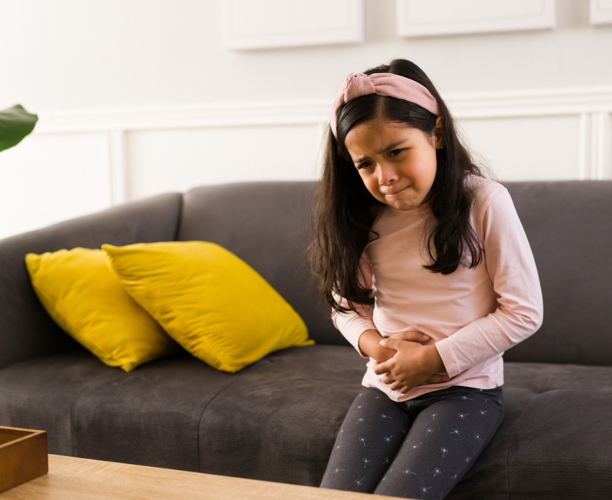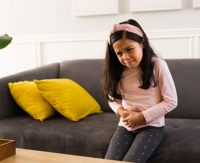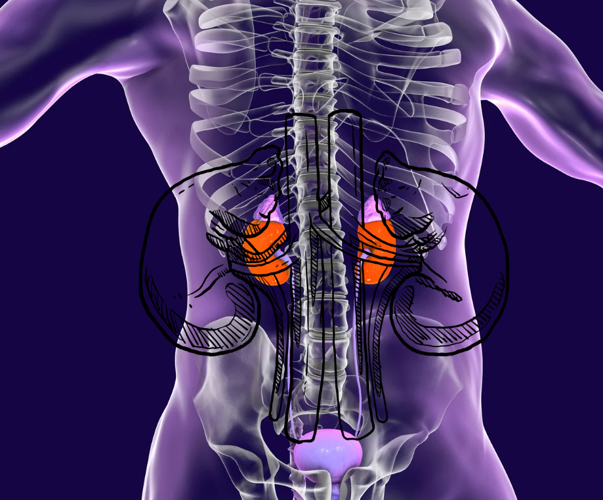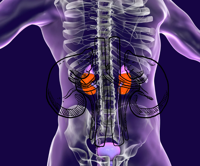
The alarming increase in pediatric kidney stones is prompting healthcare professionals to advocate for awareness and prevention efforts. According to theNational Library of Medicine, kidney stones affect approximately one in 11 people in the United States.
What is driving these increased rates of kidney stones, and how can parents protect their children's kidney health? Cesar Sauza, a registered dietitian and clinical nutrition manager at AltaMed, breaks it down for us.
Awareness of kidney stones
Sauza told CALÓ News that it is of great concern that children are getting kidney stones. “It's being seen in kids more than ever, which is very alarming because doctors aren't really trained to look for that too much in kids, because it's not very common,” Sauza said.
A 2016 study in the Clinical Journal of the American Society of Nephrology found a 28% increase in kidney stone cases among girls aged 15 to 19 over a five-year period. Boys in the same age group experienced a 23% rise.
For Sauza, it's crucial to raise awareness about this health issue in the Latino community, as it is alarming to him as a dietitian. “When I first started doing this over 10 years ago, diabetes in kids was starting to come out and it was starting to increase. And now it's completely normal that we see diabetes in kids,” he said. “We get patients that are kids with diabetes all the time, unfortunately. And I'm starting to see the same thing with kidney stones or high blood pressure or other chronic conditions.”

(Photo courtesy of Cesar Sauza)
“I think it's extremely important that we realize that as a society, we're trending down. We're not getting healthier; we're getting more unhealthy, and we're seeing it because of all these conditions,” Sauza said.
The cause associated with kidney stones
He also mentioned that while the exact causes remain unclear, diet and dehydration appear to be key factors contributing to the rise. “It's more likely related to our lifestyle; every person is a case-by-case basis. So there may be someone that gets kidney stones because of genetics,” he said.
Hydration is one of the critical factors affecting children and adults. “They often overlook water. I'll speak with parents and they talk about their kids drinking milk, juice and sodas, and then the water just seems kind of like an afterthought. The majority of patients that we counsel do not drink enough water.”
Urban heat islands, where dense infrastructure traps heat, have also been associated with an increase in kidney stones. As cities face rising temperatures, the risk of dehydration becomes more significant. According to the Pew Research Center, Latinos in particular are a highly urbanized population and are more likely to live in low-income and inner-city neighborhoods with less vegetation and green space.
Sauza also mentioned that nowadays children's salt intake is really high due to processed foods.
According to data from the Dietary Guidelines for Americans, over 90% of children aged six to 18 consume 3,300 milligrams of sodium daily—far exceeding the recommended limit of 2,300 milligrams. The consumption of processed foods, fast food and sugary drinks worsens the problem, disrupting the mineral balance in the body and fostering conditions that promote kidney stone formation.

(Canva art created by Amairani Hernandez.)
Symptoms in children
Symptoms of kidney stones in children include:
- sharp pains in the back, side, lower abdomen or groin
- pink, red or brown blood in the urine, also called hematuria
- constant need to urinate
- pain while urinating
- inability to urinate or can urinate only a small amount
- cloudy or bad-smelling urine
- irritability, especially in young children
The pain of a kidney stone may last for a short or long time or may come and go in waves. Along with pain, a child may have nausea, vomiting, fever and chills.
What parents can do
“Water would be the number one thing for prevention, and I know it sounds very simple, but most people are not doing it,” said Sauza. He also added that ideally children should drink at least two to three liters of water and for adults, the minimum is 100 ounces. He explained that an individual's water intake can vary and is largely dependent on each person's weight.
“So whatever your weight is, divide it by two, and that could give you like a ballpark number of how much water you should be having per day because, in my opinion, the whole eight cups per day general recommendation that you hear, it's way too low,” he said.
In addition to the water intake, another recommendation he made was being aware of the food intake as well. “Our food intake is also based on our weight, height and age,” Sauza said.
He also added that to prevent children from developing kidney stones, they should just be more conscious about the processed foods. “They need to be careful with things like chips, junk food, you know, and even things like candies and sweet foods,” he said. “A lot of people don't realize this, but desserts, sweet things, have salt in them. I challenge people to look at the label of a Gansito or some of the processed foods or baked sweet goods, and they'll be surprised that there's sodium in there as well and in drinks too.”
Sauza said that it’s important that parents limit their own salt, sugar and processed foods intake and instead increase their whole foods, specifically fruits and vegetables and fiber-rich foods like whole grains, nuts and seeds.





















(0) comments
Welcome to the discussion.
Log In
Keep it Clean. Please avoid obscene, vulgar, lewd, racist or sexually-oriented language.
PLEASE TURN OFF YOUR CAPS LOCK.
Don't Threaten. Threats of harming another person will not be tolerated.
Be Truthful. Don't knowingly lie about anyone or anything.
Be Nice. No racism, sexism or any sort of -ism that is degrading to another person.
Be Proactive. Use the 'Report' link on each comment to let us know of abusive posts.
Share with Us. We'd love to hear eyewitness accounts, the history behind an article.